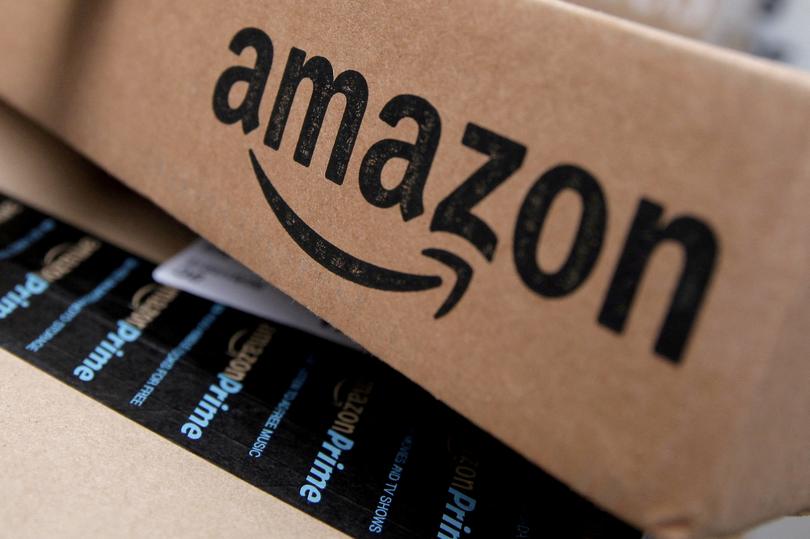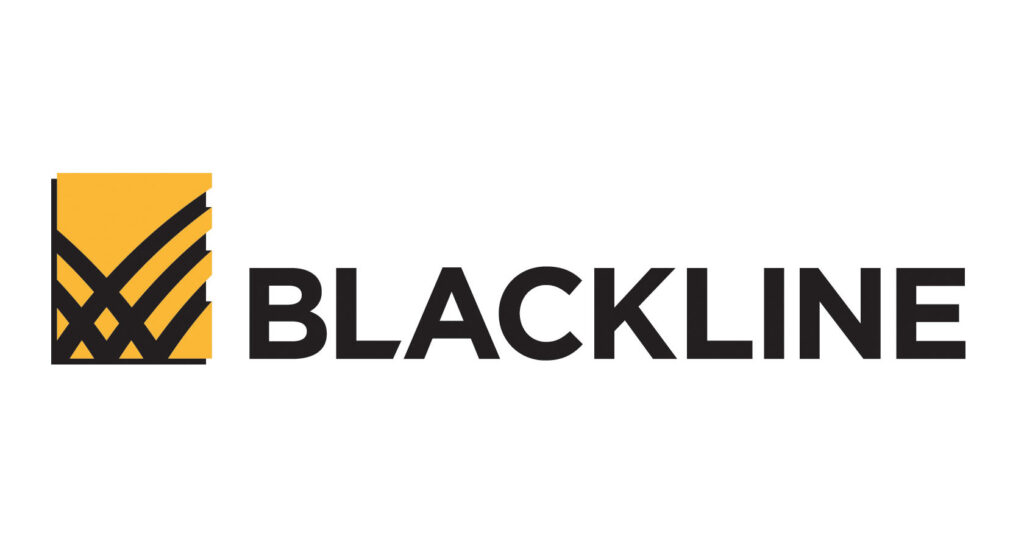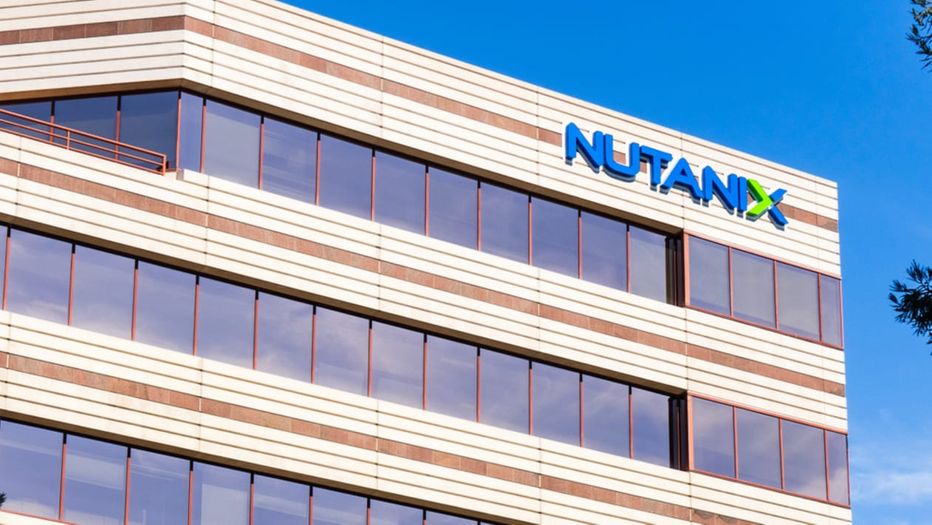Google Invests $2 Billion in Malaysia for New Data Center and Cloud Services Expansion

I am a law graduate from NLU Lucknow. I have a flair for creative writing and hence in my free time work as a freelance content writer.

I am a law graduate from NLU Lucknow. I have a flair for creative writing and hence in my free time work as a freelance content writer.
Amazon.com Inc. gave a warning on Thursday that its long, soaring growth in cloud services would slow down even more as its business clients braced for uncertainty and cut back on spending, dominating the company’s exceedingly strong quarterly revenue and profit.

On the strength of its optimistic assessment of customer sentiment and the fact that it was holding its own against cloud competitors, Amazon’s stock originally gained over $125 billion in extended trading, only to see the whole gain disappear in just a couple of minutes.
Also Read: OpenAI rolls out ‘incognito mode’ on ChatGPT
Following comments from Chief Financial Officer Brian Olsavsky, who informed analysts that cloud customers continued to try to reduce their bills as of the second quarter of the year and that Amazon was assisting them in doing so to foster long-term relationships, the share price fell.
Accordingly, he said, referencing a period that saw a consecutive decline, growth rates in revenue were approximately five percent lower in April than they were in the first quarter.
Now, shares are down 2%. The unexpected rise and collapse of Amazon are indications of a hazardous time for the business. Andy Jassy, CEO of Amazon, has vowed to reduce expenditure across the company’s wide range of operations in response to what he has dubbed an unpredictable environment.
Amazon is also dealing with a growing threat from its cloud competitors Microsoft and Google, both of whom are releasing prominent artificial intelligence products.
The cost reductions are extensive. Since November, Amazon has intended to eliminate 27,000 corporate positions. As of the most recent quarter, 1.47 million full- and part-time employees, including those working in warehouses, made up its workforce.
The company is also discontinuing all of its services, including its Halo fitness trackers. Its nationwide fulfillment operation has been reorganized. With a loss of $3.84 billion a year earlier, these initiatives helped Amazon turn a $3.17 billion profit in the quarter that concluded on March 31. However, this did little to entice investors.
An analyst at Huntington National Bank named David Klink described the company’s cloud delay as “tremendous.” “You’re not seeing (that) at either Microsoft or Google,” said Klink, whose bank held $129 million in Amazon stock as of Thursday.
Amazon Cloud, also known as Amazon Web Services (AWS), is a cloud computing platform offered by Amazon. It provides a wide range of cloud-based services to businesses, organizations, and individuals.
Also Read: Chipmaker Arm to make its own semiconductor
These services include computing power, database storage, content delivery, and other functionality that can be used to build and scale applications.
AWS is one of the leading cloud computing providers in the world, offering a highly scalable, flexible, and secure infrastructure that can be used to build and deploy applications of all sizes. It is used by millions of customers across a wide range of industries, including healthcare, finance, government, and education.

I am a law graduate from NLU Lucknow. I have a flair for creative writing and hence in my free time work as a freelance content writer.
According to media sources, Microsoft has prohibited cryptocurrency mining from using its internet services in order to protect all of its cloud users.
Microsoft has amended the Universal License Terms for Online Services, which went into effect on December 1. Microsoft has restricted the use of online services for crypto-mining. It is implemented to safeguard its consumers and cloud services. The IT behemoth announced the latest changes earlier this month.

The update stated, “Neither Customer nor those that access an Online Service through Customer, may use an Online Service … to mine cryptocurrency without Microsoft’s prior written approval.”
Microsoft’s Summary of Changes to the license mentioned, “Updated Acceptable Use Policy to clarify that mining cryptocurrency is prohibited without prior Microsoft approval.”
Read More: Microsoft to Offer Call of Duty on Nintendo Devices if Activision Deal Closes
Microsoft suggested requesting pre-approval authorization to use any of its online services for cryptocurrency mining in the ‘Acceptable Use Policy’ section of its website, which comes amid rising worries about cyberfraud and threats.
The company noted, “Cryptocurrency mining can disrupt or even impair Online Services and its users, and is often associated with unauthorized access to and use of customer accounts.
We made this change to further protect our customers and mitigate the risk of disrupting or impairing services in the Microsoft Cloud. Permission to mine crypto may be considered for Testing and Research for security detections.”
Cryptocurrency cloud mining enables users to mine without the need for additional hardware or equipment. According to statistics from the blockchain research firm, Blockchain Council, this aspect of no cost associated has piqued clients’ interest in cloud mining. Microsoft Online Services, a part of the company’s SaaS strategy, is its hosted software product.
One of these services is the Microsoft Azure cloud computing network, which offers cryptocurrency mining for several subscription kinds. As was reported earlier, Microsoft also tested out blockchain services on Azure, but in September of last year, the project abruptly ended.
According to sources, Microsoft cloud computing systems have experienced storage issues in recent years as a result of constraints in the ongoing supply chain. Microsoft issued a warning to users about a new cryptocurrency mining malware last year that has the ability to steal credentials, disable security measures, proliferate via emails, and eventually drop additional tools for human-operated operations.
The cryptocurrency mining malware known as “LemonDuck” is propagated by phishing emails, vulnerabilities, USB devices, and brute force assaults in a number of nations, including India. It targeted Linux and Windows systems. This is not the first time that a major IT company has prohibited cryptocurrency mining on its website.
Similar rules apply at Google, which forbids mining without explicit written consent from the company. A mining malware threat detection solution for hacked accounts in Google’s cloud service was added earlier in 2022. Google stated last year that the majority of “malicious actors” had utilized compromised cloud accounts to mine cryptocurrency.
Crypto mining is likewise not permitted during the 12-month free trial of Amazon’s AWS. If users decide to mine on AWS, they can be charged a fee and risk having their accounts suspended.

I am a law graduate from NLU Lucknow. I have a flair for creative writing and hence in my free time work as a freelance content writer.
BlackLine cloud-based finance operations management software, drives accountability through visibility, unifies data and processes for businesses, automates repetitive tasks, and provides industry-leading customer support.
About the Company
Blackline is an American software company that offers cloud-based services to automate and manage the complete financial closing process. Numerous clients depend on BlackLine to deliver thorough and precise results quickly. The company established the cloud financial closing market, and customers at reputable end-user review websites like Gartner Peer Insights, TrustRadius, and G2 have named it the best. Large enterprises and small businesses across all industries benefit from BlackLine’s solutions for managing and automating financial close, accounts receivable, and inter-company accounting operations. The company is headquartered in Los Angeles, California, and has 11 offices around the globe.

History
In 2001, Therese Tucker, a former CTO at SunGard Treasury Systems, established BlackLine. The initial objective was to assist clients in switching from using Excel to a set of accounting systems. The company operated without any outside funding up until 2013, when Silver Lake Partners, a private equity group, invested over $200 million in the firm. In 2015 a strategic partnership was made between Blackline and McGladrey, a financial consultancy firm. The companies started providing a business process as a service (BPaaS) framework as a consequence of the deal. In 2016, BlackLine went public and is represented by the ticker BL on the NASDAQ. In 2016, Blackline paid over $34 million to acquire Runbook, a competitor in Europe Before being bought by Blackline, Runbook sold a dashboard application software package for SAP. The “automation of recurrent financial activities” by the software improve “internal control systems and compliance paperwork” and increases “visibility and transparency” of data kept by SAP. In 2018, BLackline and SAP entered into a contract with SAP to “resell BlackLine’s cloud-based accounting and finance solutions” as a component of “SAP Solution Extensions.” In 2020, the company acquired UK-based accounts receivable automation startup Rimilia. In 2016, Forbes’ Cloud 100 list included BlackLine at number 43. The company, which has a market worth of $3.5 billion, is the biggest tech company with a single female founder.
Operations
More than 3,100 organizations, including Netflix, Costco, Coca-Cola, JetBlue Airways, Kraft Heinz, Google, Sirius XM Holdings, and Under Armour, use Blackline’s software. In contrast to simple general ledger software, the company develops stronger financial controls. A technique referred to as continuous auditing is used by BlackLine’s software to manage financial data, reconcile balances from sub-systems, assure correct and thorough closings, and keep an eye on regulatory controls. The business uses cloud-based software that complies with ISO 27001 standards and is predominantly run on the Cloud Platform from Google.
Founder – Therese Tucker
BlackLine was founded by American entrepreneur Therese Tucker. Tucker’s first role was as an engineer at Hughes Aircraft. Earlier she was the CTO at SunGard Treasury Systems. In 2016, she made BlackLine public. Tucker held the positions of CEO and Chairman until 2020 when she resigned. Her worth was estimated to be $140 million after BlackLine’s IPO. based. In 2020, Forbes placed her net wealth at $370 million. She graduated from the University of Illinois with a bachelor’s degree in mathematics and computer science.
CEO – Marc Huffman
A veteran of the cloud accounting software sector Marc Huffman has an outstanding track at various prosperous software firms. He began working with BlackLine in 2018 as COO before being elected as the company’s President in 2020. As President, he oversaw all customer-facing sales, marketing, and technology organizations globally. Early in 2021, he was elevated to the role of CEO. Since his hiring, BlackLine has expanded its sales and client success teams strategically realigned its go-to-market strategy, finalized a global reseller deal with SAP, set up a subsidiary in Japan, and formed several collaborations with the top consulting and advising firms around the globe.

I am a law graduate from NLU Lucknow. I have a flair for creative writing and hence in my free time work as a freelance content writer.
Cloud technology is the most innovative and in-demand technology today. Hence the number of companies that require cloud services and the number of companies that develop cloud-based solutions has increased drastically in the past five years. Braze is another leading cloud-based software company that is not only popular in the American technology industry but also provides its service all over the world. The company is known for its customer engagement platform, and we can easily estimate the popularity of Braze based on how fast it has expanded to different corners of the world. Today, the company has established its offices in countries like San Francisco, London, Singapore, Chicago, and Tokyo.
About the Company
Braze is a mere a decade old company, which got its success through its customer engagement platform used by the business for multichannel marketing. The product is based on cloud technology, so provides the best user experience to the clients. It is a publically traded company and trades on NASDAQ as BRAZE. Mark Ghermezian, Bill Magnuson, and Jon Hyman founded Braze in 2011, and Bill Magnuson is the CEO of the company. The company headquarters is based in New York, US. The Customer Engagement Platform is the major product of the company and over 1000 people are working for it. Burger King, Babylon Health, HBO Max, Pure Gym, and Grubhub are some of Braze’s permanent clients.

The Founding of Braze
Jon Hyman and Mark Ghermezian participated in and won the NYC Disrupt Hackathon for Gilt-ii in 2011. The two met the third co-founder, Mark Ghermezian, of Braze at the same event, and the trio decided to establish a Company. The three founded Braze as Appboy in 2011, raising $3 million in investments from different investors. The very next year, the company released an iOS SDK, and in 2013, it raised $7.6 million in a Series A round of funding along with releasing an Android SDK.
In 2015, the company held a Series B round of funding and raised $15 million. The same year, Appboy also introduced an API. With a Series C round of funding in 2016, the company made bagged investments worth $20 million and opened a new office in London. The company ran with the same name for six years, and in 2017, it was rebranded as Braze Inc. after it led a series D funding raising $50 million.
In 2018, Braze launched Braze Alloys for email, and the next year it introduced Google AMP for email. With Series E funding, Company raised $80 million in 2018 and is valued at f $850 million. Forbes listed the company under the Cloud 100 list of 2019. Also, Inc. named Braze one of the Best Places to Work in the same year. By 2020, Company was delivering over 100 billion messages each month. The company was named one of the Best Places to Work for the second time in 2020.
In 2021, Braze recorded an annual revenue worth $200 million for FY21. The same year, the company launched Canvas, Skyscanner, and Apptopia. The company also partnered with Snowflake and Shopify in 2021. Braze went public on NASDAQ in October 2021 and started trading as BRZE. With the IPO, the company raised $520 million and was valued at $5.9 billion.
The CEO at Braze
Bill Magnuson is one of the co-founders and the CEO of Braze Inc. He went to the Massachusetts Institute of Technology, where he completed a B.S. in Computer Science and a Master’s in EECS. After completing his higher education, Bill started his internship at Google as a software engineer. In 2010, he started working as a software engineer at Bridgewater Associates. The next year, he, along with Jon Hyman and Mark Ghermezian, co-founded Braze as Appboy Inc. and became the CTO of the company. In January 2017, Bill was appointed as the CEO of Braze.

Yashica is a Software Engineer turned Content Writer, who loves to write on social causes and expertise in writing technical stuff. She loves to watch movies and explore new places. She believes that you need to live once before you die. So experimenting with her life and career choices, she is trying to live her life to the fullest.
With a goal to make IT management easier for the industrial sector, Nutanix Inc was founded in September 2009. The company’s founding team was three successful Indian entrepreneurs, Dheeraj Pandey, Mohit Aron, and Ajeet Singh. Nutanix’s headquarters is based in San Jose, California, US. The main products of the company are Enterprise Cloud Platform, Business Software, and IoT. It offers various cloud-based solutions and services as well disaster recovery, cloud monitoring, and much more. There are more than 20,000 leading companies that are customers of Nutanix including Volkswagen, Vodafone, Nasdaq, Seattle Children’s, etc. Currently, the company is focusing on developing more products for entering into the hybrid multi-cloud ecosystem.
Founding Story
Nutanix is an IT company that mainly focuses on providing cloud-based enterprise software. It has also received several awards for innovation and best products and also as a startup. This startup was founded in 2009 and one of the co-founders, Dheeraj Pandey became the CEO of the company. Mohit Aron left the company in 2013 to found a computer data storage company, Cohesity. Nutanix was very lucky when it came to raising funds as, within four years of its establishment, it successfully hosted five funding rounds. By 2013, the company raised $312.2 million from funding and it also reached a $1 billion valuation in the same year and received unicorn status. In 2014, its valuation became $2 billion after the Series E funding where it raised $140 million. Some of the major investors involved were Khosla Ventures, Lightspeed Venture Partners, and Blumberg Capital.
Nutanix became a public company in 2015 but unfortunately, it suffered a net loss of $126 million in the same year. The company also started acquisitions in 2016 and acquired two companies, namely, PernixData and Calm.io in the same year. In 2017, Nutanix established a partnership with IBM, and again in 2018 acquired three companies, Netsil, Minjar, and MainFrame2 Inc. After the pandemic, the company shifted from making hardware applications to SaaS products.

Awards & Accolades
Founded in 2009, Nutanix started receiving prestigious awards after a couple of years. In 2011, the company received the Best of VMworld 2011 – Gold Award for its products. The experts made Nutanix the winner based on innovation, usability, reliability, value, and performance. In 2012, Nutanix again received the “Best New Product of 2012” award by VMworld because they liked the SAN-free approach by Nutanix for enhancing virtualization performance. It received a series of awards in 2013 including VMworld vFlipcup 2013 Champions, announced one of the top 100 companies in North America by Red Herring, LinkedIn Top 10 InDemand Tech Startup, recognized as “Cool Vendor” by Gartner, and a few more.
In 2014, Nutanix was named a Tech Trailblazer which is a new concept in the startup ecosystem. This award was mainly given to young startups and after it was recognized as such, the companies received a lot of support for growing their business. In the same year, it also bagged a customer service award and received the Technology of the Year award by InfoWorld. Dheeraj Pandey, one of the co-founders was named EY Entrepreneur of the Year in 2015. In 2018, the company was featured by well-known magazines and companies like Forbes, Gartner, Deloitte, and GEC Media Group. Nutanix was also named one of the 18 great companies for millennials in the San Francisco area. Recently, it has received a few awards for being one of the top workplaces.
Rajiv Ramaswami – CEO of Nutanix
Rajib Ramaswami is the current CEO and President of Nutanix who joined the company late in 2020. Before he joined Nutanix, he worked in various positions at VMware. Ramaswami was the Executive Vice President and General Manager of VMware’s networking and security business and later he became the Chief Operating Officer of Products and Cloud Services. Ramaswami worked at various other companies including IBM, Cisco, Nortel, Tellabs, and Broadcom. He completed his bachelor’s degree in India and then went to the University of California, Berkeley.

Annasha Dey is an NIT student, who apart from studying engineering is also a content writer. She has a great interest in photography, writing, reading novels, and travelling as well. She is a foodie who loves socializing and hanging out with her friends. She is also a trained Kathak dancer and a big fashion enthusiast. Dey also loves watching TV series, which includes F.R.I.E.N.D.S. and Big Bang Theory. To be a better writer she prefers to read more